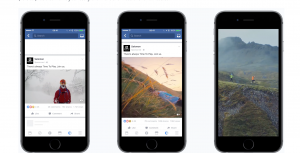The much-anticipated Pixel 4 and Motion Sense from Google could play a role in the future of digital engagement.
Google revealed a number of Pixel 4 features Monday, including facial recognition and hands-free controls thanks to Google’s Soli project. In a blog post, Google detailed how Pixel 4 owners will be able to use Motion Sense to execute commands like skipping songs and snoozing alarms by waving their hand. The post implied that this is only the beginning of Motion Sense, and that we can expect to see updates to new Pixel releases in the future. It also described its new approach to facial recognition technology, data privacy and security.
Why we should care
We’ve all witnessed and experienced how new and emerging technologies influence consumer behavior; from liking posts on social networks to how we interact with brands across digital properties, the past decade has seen a tremendous shift in how technology drives consumers.
The Pixel 4’s Motion Sense feature uses a miniature radar located on the phone that will sense when its owner is nearby and be able to recognize hand gestures. If our customers are no longer touching their phones, how will they engage with our brands? We may be looking into a future where we’ll be optimizing mobile campaigns for hands-free touchpoints.
As future versions of the Pixel are developed, Motion Sense evolves and other smartphone makers experiment with hands-free gestures, we can expect that the features will evolve to ensure digital advertisers’ and marketers’ messages will reach consumers in interactive ways that are beyond today’s functionalities.
More on the news
Google also shared updates on the Pixel 4’s face unlock and privacy and security features:
- Face unlock uses algorithms and sensors to recognize the phone’s owner, unlock and open it while the individual picks up their phone.
- Face unlock can also be used to transact secure payments and app authentication.
- The facial recognition technology is processed on the device using Pixel’s Titan M security chip and never leaves the phone to ensure it remains secure. It will never be saved or shared with other Google services.
- The Soli sensor data is also stored on the phone and never shared or saved with other Google services.
Marketing Land – Internet Marketing News, Strategies & Tips
(21)
Report Post








